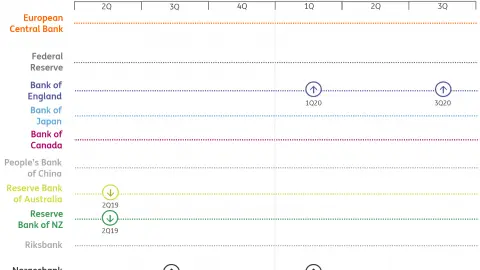France: Macron’s speech keeps debate open
In an unusually long address, French President Emmanuel Macron outlined his plans for the coming years- although financing remains unclear. The speech was wide-ranging enough to keep the “Great Debate” open, which could help his party’s EU election campaign
In an unusually long address on Thursday, President Macron outlined his intentions for the second half of his presidency- responding to the yellow vest protest movement and the subsequent “Great Debate”, which allowed citizens to air grievances and propose new ideas.
In the speech, he stood by the actions taken during the first half of his mandate and insisted that reforms would continue. But the address was clearly inspired by the main themes of the national debate, and the major proposals, some of which were described in detail, clearly reflect public concerns.
Improving democracy
Macron talked about reforming France's parliament, the National Assembly and increasing the number of local referendums. But he also floated the idea of a national petition and said the government would have to find ways of improving the decentralisation of powers before 2020 through a new “territorial pact”.
Tax cuts
On the fiscal side, Macron confirmed that the initial reforms (notably the wealth tax) would not be touched before being properly evaluated in 2020. But he promised more income tax cuts for the middle-class and more incentives for low-wage workers. However, he said the government would have to fight inequality through other policies as well: more education reform is planned and the heavy investments in life-long learning will be maintained.
Transitional agenda
Macron also discussed how to manage significant transitions such as climate change and ageing. On ageing, most of the proposed measures have already been under discussion in some form or another. However, Macron was particularly keen to push climate policies. This will be his first priority at the EU level (pleading for carbon tax, greener EU investments…). But the government will have to reconsider all existing incentives and taxes linked to households’ decisions that have an impact on climate change (heating systems, house isolation, cars etc…). A collective strategy will have to be in place in 2025, which seems late given the Paris Agreement targets.
Identity
Macron also spoke about “what it means to be French”, signalling his second European priority: redefining the rules of Schengen and a European migration policy.
Overall, it seems that the speech could open, rather than close the debate, especially on ways to finance the expected policy measures. Ten days before the launch of his party’s EU election programme, this is a strategy that could play well in the polls. In the meantime, the main message is clear: this government has more reforms on its agenda than any government in the last 20 years. The second half of this presidency looks terribly short in comparison to the task at hand.
This publication has been prepared by ING solely for information purposes irrespective of a particular user's means, financial situation or investment objectives. The information does not constitute investment recommendation, and nor is it investment, legal or tax advice or an offer or solicitation to purchase or sell any financial instrument. Read more
Download
Download article
26 April 2019
In case you missed it: Secular stagnation? This bundle contains 8 Articles